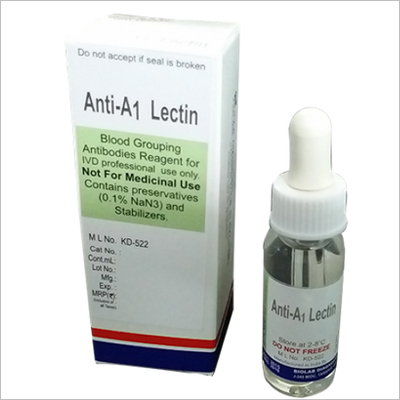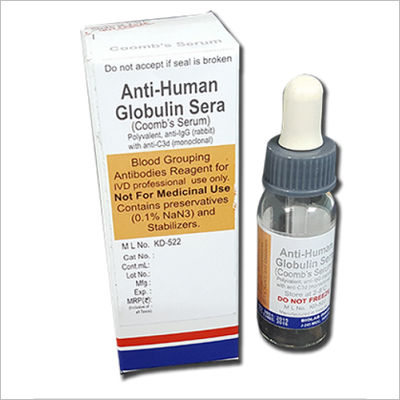Call : 08045813979
Call : 08045813979
Anti A1 Lectin
Product Details:
X
Anti A1 Lectin Price And Quantity
- 1000 Piece
Anti A1 Lectin Trade Information
- 5000 Piece Per Week
- 4-12 Days
Product Description
Anti-A1 lectin is a laboratory reagent used to determine blood type and detect the presence of the A1 antigen on red blood cells. The ABO blood typing system classifies blood into four major types: A, B, AB, and O, based on the presence or absence of specific antigens on the surface of red blood cells. The A1 antigen is a subtype of the A antigen, and is present in approximately 80% of people with type A blood. Anti-A1 lectin is a plant-derived lectin that binds specifically to the A1 antigen, and is used in blood typing procedures to distinguish between A1 and non-A1 blood types.
The use of anti-A1 lectin can be important in certain clinical situations, such as when a patient with a non-A1 blood type needs a blood transfusion from a donor with type A blood. In this case, it is important to ensure that the donor blood does not contain the A1 antigen, as this can cause a potentially life-threatening immune reaction in the recipient. While anti-A1 lectin is generally considered safe and effective when used by a trained laboratory professional, it is important to follow appropriate safety precautions and to properly dispose of any biohazardous waste generated during the blood typing process.
Enter Buying Requirement Details
Other Products in 'Blood Bank Reagents' category
"We are mainly looking for Bulk Order Inquiries"
 |
BIO LAB DIAGNOSTICS INDIA PRIVATE LIMITED
All Rights Reserved.(Terms of Use) Developed and Managed by Infocom Network Private Limited. |

 Send Inquiry
Send Inquiry English
English Spanish
Spanish French
French German
German Italian
Italian Chinese (Simplified)
Chinese (Simplified) Japanese
Japanese Korean
Korean Arabic
Arabic Portuguese
Portuguese


